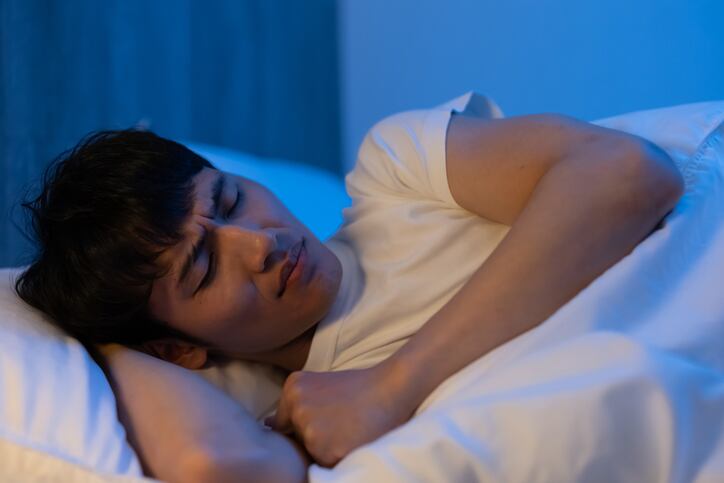Researchers in Japan conducted a randomised, double-blind, placebo-controlled clinical trial. They found that B adolescentis SBT2786 can improve sleep quality and mood of stressed adults by regulating various brain functions through a complex communication network known as the gut-brain axis.
“This study has significant implications, as it demonstrates the effectiveness of SBT2786 in both D. melanogaster [fruit flies] and humans,” wrote the researchers in Nutrients.
“After a 4-week intervention, SBT2786 treatment resulted in extended sleep duration. This represents a successful example of using D. melanogaster for screening before efficacy testing in humans,” said the researchers, who explained that fruit flies share many similarities with mammals, making them suitable model organisms for studying sleep.
Sleep deprivation is strongly associated with various physical and mental health conditions, including cardiovascular diseases, obesity, diabetes, and depression. Therefore, there is a need to develop effective and safe strategies for improving sleep quality.
Among the species tested, B adolescentis SBT2786 had the most potent sleep-promoting effect. A study trial was thus conducted to understand the efficacy of B adolescentis SBT2786 on improving sleep in humans.
The study
The trial was conducted from February to December 2023 in Japan. It included a screening test, a one-week pre-observation period, and an intervention period when participants took SBT2786.
Healthy Japanese men and women, aged 30–59 years, with a body mass index (BMI) of <30 kg/m2, who were dissatisfied with their sleep quality, worked on weekdays, and had the habit of sleeping by midnight, were recruited.
During the study period, participants were required to maintain their lifestyle habits as before the study, especially sleeping habits, eating habits, and exercise. However, they were instructed to avoid consuming foods for specified health uses, foods with function claims, health foods (including dietary supplements). They also had to refrain from consuming caffeinated beverages after 8:00 pm, abstain from alcohol, bathe at least 2 hours before bedtime, avoid exposure to blue light from devices for 1 hour before bedtime, and refrain from exercising for 2 hours before bedtime.
There were 61 participants in the SBT2786 group and 65 participants in the placebo group.
The SBT2786 group took the active capsules, which were prepared by mixing and encapsulating B adolescentis SBT2786 powder and starch. Active capsules were formulated to deliver more than 1.0 × 1011 cells of B adolescentis SBT2786 when four capsules were consumed. Placebo capsules were prepared using starch. The active and placebo capsules were identical in appearance.
Participants were instructed to consume four capsules daily over a period of 4 weeks.
Sleep electroencephalogram (EEG) measurements of overnight brain activity were recorded for seven consecutive nights before the trial and during the last week of the trial.
The participants were asked to complete a questionnaire and indicate their sleepiness or fatigue on a visual analogue scale (VAS) upon waking each day during the pre-observation period and the last week of the intervention period.
They also completed the PSQI-J (the Japanese version of the Epworth Sleepiness Scale) and Profile of Mood States second edition (short version) (POMS2) during screening, pre-testing, and at the end of the study. The PSQI-J is a self-rated questionnaire to measure sleep quality and disturbances, and POMS2 is a psychological rating scale used to assess mood states.
Saliva samples were collected at the start of the trial and 4 weeks later (weeks 0 and 4) to analyse salivary amylase levels, an enzyme in saliva that breaks down starch and can indicate stress levels.
To evaluate sleep status, blood growth hormone levels were measured at the same time points as the saliva samples. Growth hormones are secreted during sleep and regulate bone density, muscle mass, glucose, and lipid metabolism. It can also affect heart and kidney function.
To assess the safety of B adolescentis SBT2786, urine and blood tests were performed to observe metrics such as protein, sugar bilirubin levels.
The participants were also instructed to maintain a daily record of their intake of test samples, lifestyle changes (including diet, alcohol consumption, exercise levels, bowel movements, and sleep duration), work status, menstrual cycle (for female participants), use of pharmaceutical drugs, and visits to medical institutions.
Results
The EEG findings revealed that the consumption of SBT2786 led to an increase in sleep duration. The questionnaires also revealed an improvement in sleepiness upon waking and during the day, the feeling of being well-rested, and a reduction in fatigue upon waking. These results suggested that SBT2786 not only prolongs the duration of sleep but also enhances sleep quality in individuals with high stress levels.
“The results showed that SBT2786 increased sleep time; however, it predominantly increased light sleep and did not improve subjective sleep quality. Interestingly, mood improvement was observed. A subgroup analysis was conducted on participants with high stress levels, and results showed that these participants experienced an increase in sleep duration and an improvement in sleepiness upon waking up and reported feeling well-rested during the day,” said the researchers
The researchers also observed that the effectiveness of SBT2786 was influenced by psychological conditions, particularly stress levels. Stress is known to have both positive and negative effects on sleep. Short-term stress increases the amount of sleep due to the need to recover and adapt to the changed environment. On the other hand, chronic stress leads to sleep disturbances, such as reduced deep sleep and disrupted sleep-wake cycles.
Additionally, a previous study reported that even heat-killed SBT2786, as well as unkilled SBT2786, resulted in prolonged sleep duration at night and shortened sleep latency. Based on these results, live SBT2786 cells are not essential for improving sleep quality; instead, they may act as a prebiotic that induces changes in the gut microbiota or as a biogenic substance that directly affects the host.
However, the limited sample size and restriction of the participants to a specific population may have affected the generalisability of the results. Furthermore, the questionnaires used in this study were subjective. While the study yielded positive results for the use of SBT2786 in improving sleep and mood, further research is required to address the limitations of this study.
“The results showed that SBT2786 may improve sleep quality, particularly in individuals experiencing high levels of stress. These findings indicate that SBT2786 can be used as a dietary supplement to improve sleep and mood,” concluded the researchers.
Source: Nutrients
DOI: https://doi.org/10.3390/nu16111702
“Bifidobacterium adolescentis SBT2786 Improves Sleep Quality in Japanese Adults with Relatively High Levels of Stress: A Randomized, Double-Blind, Placebo-Controlled Study”
Authors: Hiroki Murakami, Taro Ko et al.
Active Lifestyle Nutrition will be a major topic at Growth Asia Summit 2024 – join us in Singapore to learn about market opportunities and glean insights from major industry experts. Find out more here.





